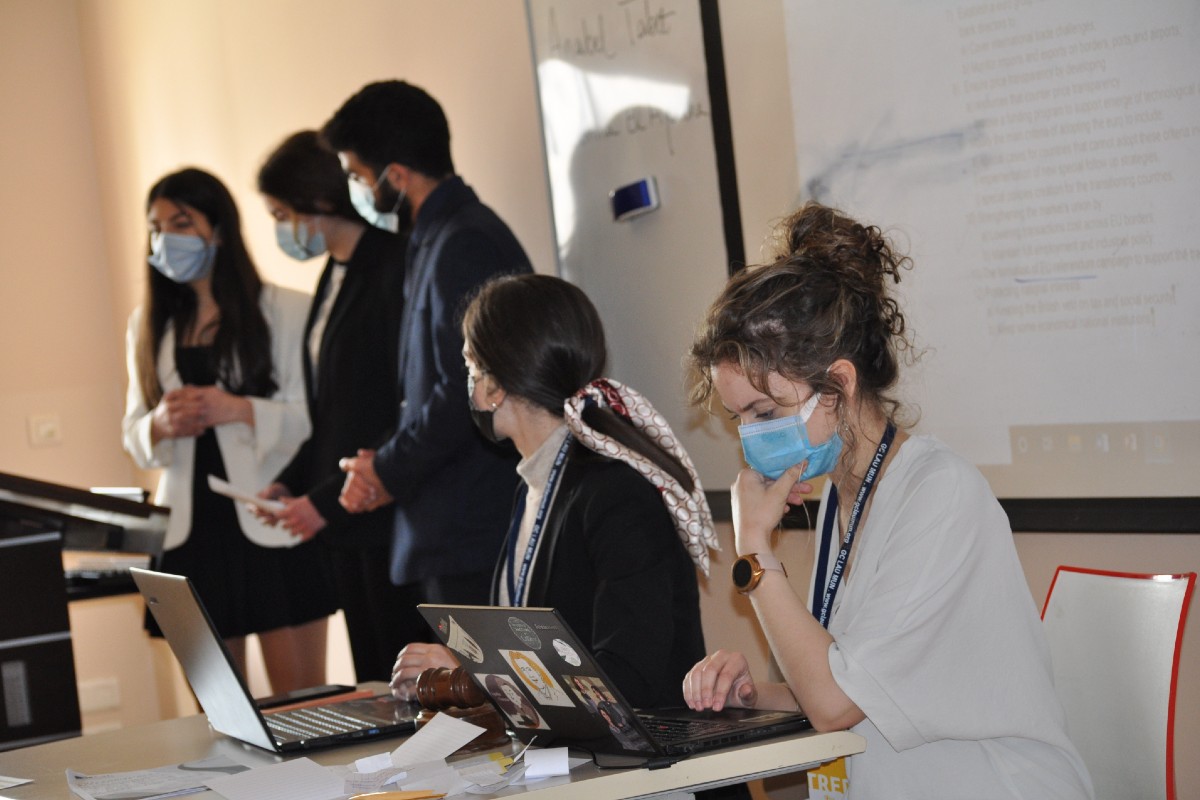Another Year of Simulation Programs Gives Rise to New Leaders
Middle and high schoolers gain unique leadership training and are rewarded with LAU scholarships.
All five simulation programs were finally back to in-person delivery this year, reviving the buzz of school and university students on LAU’s campuses over the weekends.
In spite of the ongoing economic challenges and the pandemic, the program organizers were able to defy obstacles and ensure adherence to strict health and safety measures.
In 2005 the first of the programs - the Model United Nations (MUN) – was launched, and over the next 17 years, four more programs were gradually added: the Model Arab League (MAL), Model European Union (MEU), Model African Union (MAU) and Model Good Governance (MGG). Today, they have become a staple of student leadership and outreach across Lebanon.
The simulation programs provide middle- and high-school students with experience in public diplomacy, while equipping them with public speaking, problem-solving, research and leadership skills.
“The thousands of delegates who came to our campuses this spring were visibly and happily transformed by the experience of mingling with students from all over Lebanon, engaging in impactful discussions in the sessions, and learning to speak out while working in teams during the program’s duration,” said Dr. Elise Salem, vice president for Student Development and Enrollment Management (SDEM).
In addition to the skills gained, the simulation programs at LAU offer a great opportunity for high-school students to win scholarships that will help them fund their education at the university. Winners are offered a 50 percent scholarship for the Secretary General Award and a 25 percent scholarship for the Diplomacy Award.
This year, MAL, MEU, MAU and MGG held a joint, two-day final conference on April 9 and 10 that hosted more than 1,000 participants and awarded 68 scholarships to excelling students. Similarly, the MUN’s own conference on April 30 and May 1 included more than 1,000 participants, and 58 scholarships were granted.
LAU students also benefit greatly from taking part in the programs, as they take the lead in organizing and managing them. They plan and deliver the training sessions, and provide administrative, IT and auditing support to their peers. These valuable, hand-on experiences are a springboard for future professional success.
“In brief, they become confident, inspirational leaders,” said Dr. Salem, pointing out that these “skills stay with them their entire lives, so it’s no surprise that they land top jobs, get into leading graduate programs and are the recipients of global awards.”
Student leaders have also expressed how the programs have helped them. “After my promotion, I was able to challenge and grow my leadership skills as I oversaw several teams’ work and became exposed to all the elements required to build a successful, efficient team,” said Secretary General of the Simulation Programs Hazem Daher.
Daher was also a delegate of the simulation programs while at high school, which, the mechatronics engineering major said, “had an impact on the person I have become today and played a huge part in my academic and professional career choices.”
These programs are essential for the Lebanese youth and for the country in general. In the words of Outreach and Leadership Programs Manager Ghina Harb, “Their importance is in that they empower the youth, giving them the needed hands-on skills to be agents of hope for a better tomorrow.”
